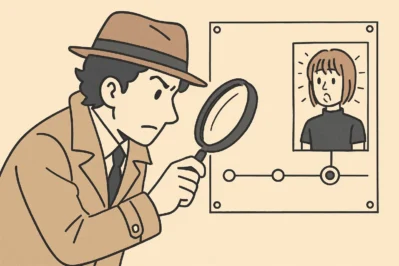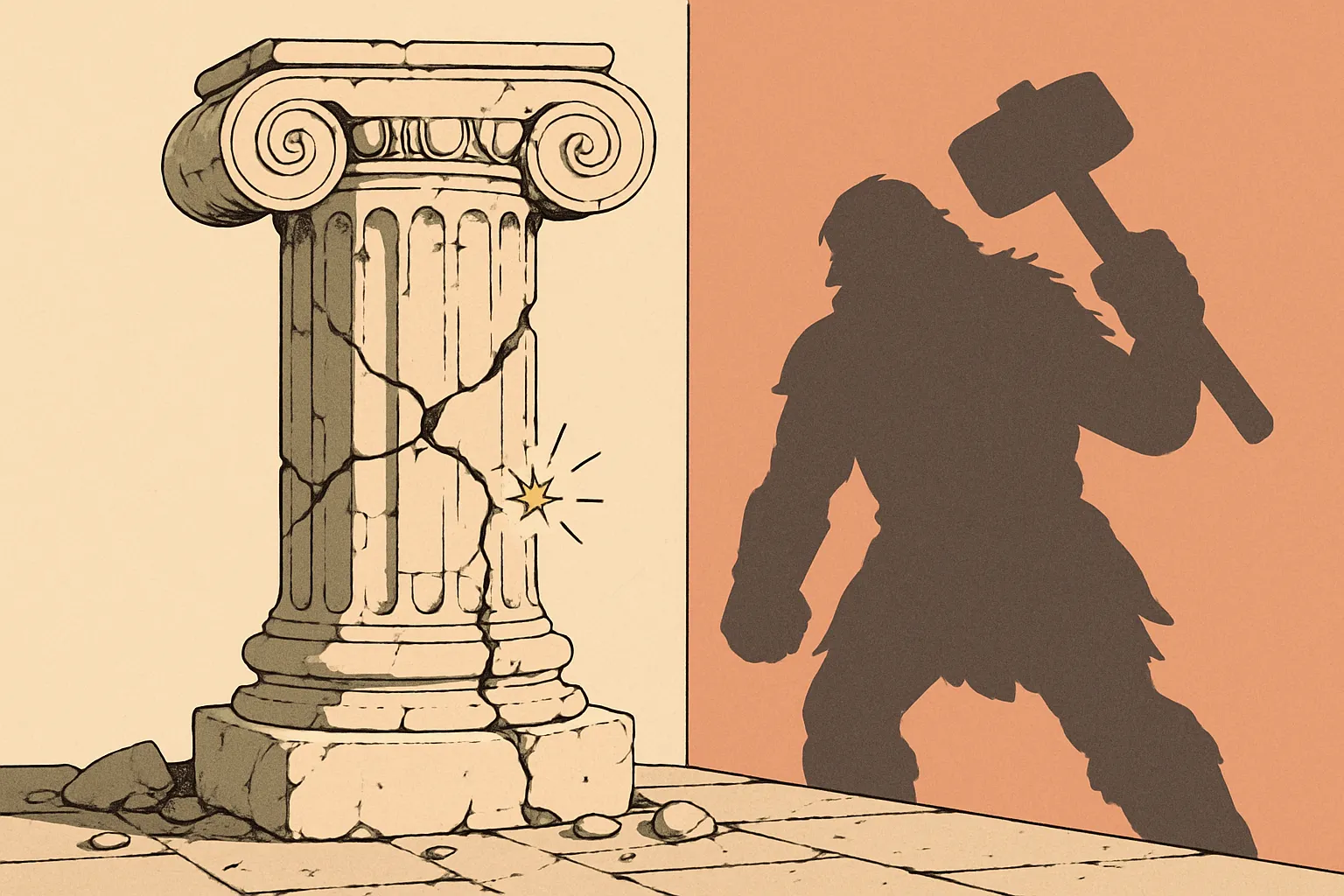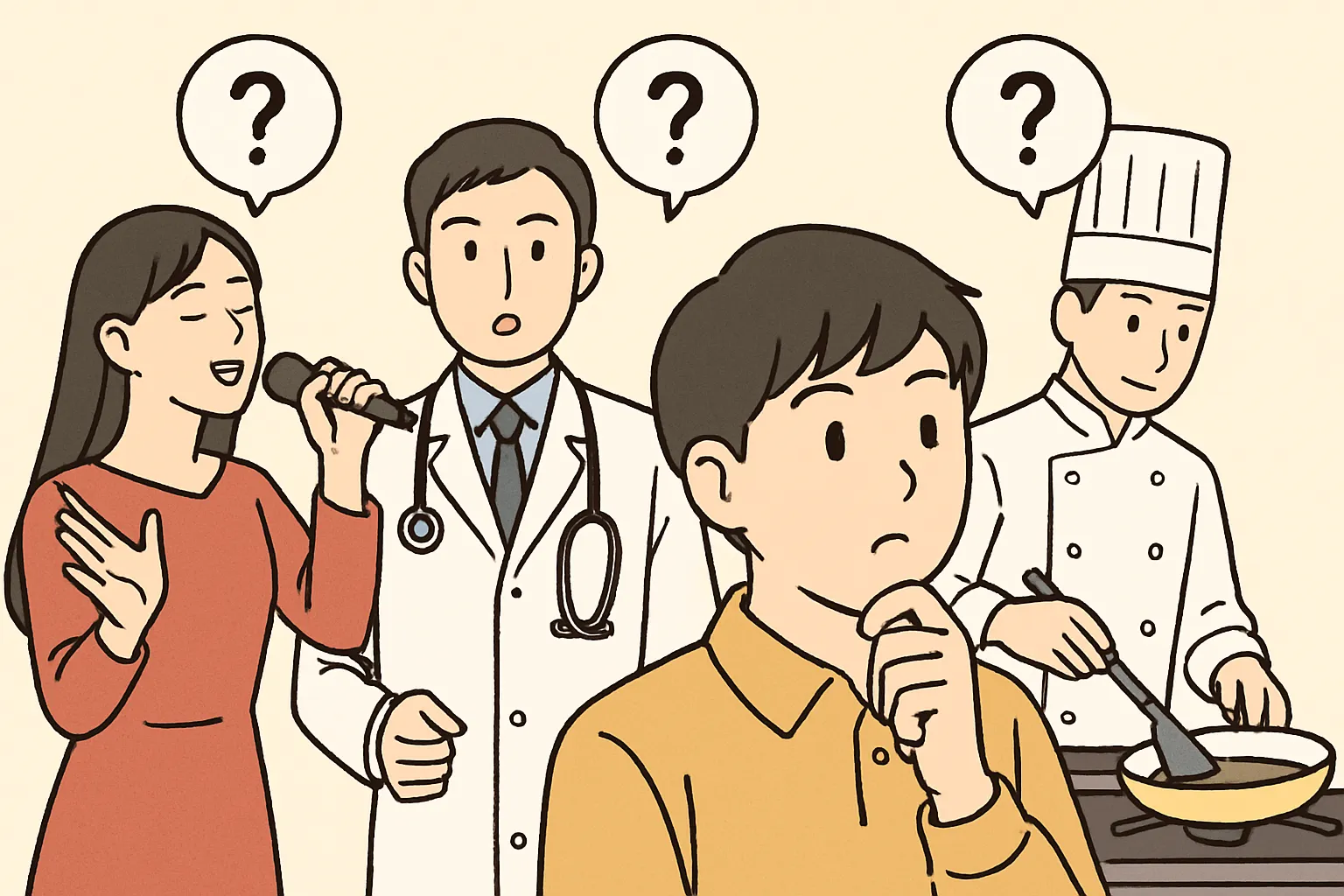K-Drama Detective Mode: Master Past Guesses in Korean!
Hello! This is Maeil Hangul (매일한글), here to upgrade your Korean skills!
Have you ever been completely surprised by a friend’s sudden change? Maybe they aced a test you thought was impossible, or they suddenly show up with a brand-new style. In those moments, your brain turns into a detective, trying to figure out what happened.
Lately in Korea, the Y2K and retro fashion trend is making a huge comeback, inspired by recent hit dramas. Imagine your friend, who usually wears hoodies and jeans, suddenly appears dressed like a 90s K-pop idol. You’d probably think, “What happened over the weekend?!”
Today, we’re going to learn how to express those guesses about the past with different levels of certainty, just like a character in a crime thriller or a friend gossiping about a K-drama plot twist. Let’s level up your advanced grammar!
Your Detective Toolkit: 3 Levels of Guessing
Here are three essential grammar patterns to express your theories about the past, ranging from near certainty to a wild guess.
1. The “Case Closed” Guess: -(으)ㅁ에 틀림없다
- Korean Expression: -(으)ㅁ에 틀림없다 [-(eu)m-e teullim-eopda]
- English Meaning: Must have (done/been)…; It’s certain that…
- Detailed Explanation: This is your strongest tool. You use it when you have very strong evidence and are almost 100% sure about a past event. It’s a bit formal and often used in writing or when you want to state your conviction powerfully. It’s the Korean equivalent of saying, “There’s no doubt that…”
- Attach -았/었음에 틀림없다 to the verb stem. (e.g., 보다 -> 봤음에 틀림없다).
2. The “Highly Likely” Guess: -았/었을 것이다
- Korean Expression: -았/었을 것이다 [-ass/eoss-eul geo-si-da]
- English Meaning: Probably/must have (done/been)…
- Detailed Explanation: This is one of the most common ways to make a strong guess in both speaking and writing. It implies you have good reason to believe something happened, but it’s still an assumption, not a proven fact. In conversation, it’s often shortened to -았/었을 거야 (casual) or -았/었을 거예요 (polite).
- This is your go-to for everyday strong predictions about the past.
3. The “It’s a Possibility” Guess: -았/었을지도 모르다
- Korean Expression: -았/었을지도 모르다 [-ass/eoss-eul-ji-do mo-reu-da]
- English Meaning: Might/could have (done/been)…
- Detailed Explanation: This expression is perfect for when you’re just throwing a theory out there. There’s a real possibility, but you’re not very certain. It literally means “I don’t know if it might have happened,” which perfectly captures the nuance of uncertainty. In conversation, you’ll often hear it as -았/었을지도 몰라 (casual) or -았/었을지도 몰라요 (polite).
Example Dialogue: The Mystery of Minjun’s New Style
Let’s see how these expressions work in a real conversation. Friends Sora and Jihoon are shocked to see their friend Minjun.
A (Sora): 와, 민준이 좀 봐! 어제까지 평범했는데, 오늘 갑자기 90년대 아이돌처럼 입었어. 춤도 엄청 잘 추는데?
Wow, look at Minjun! He was so normal yesterday, but today he’s suddenly dressed like a 90s idol. And he’s dancing so well!
B (Jihoon): 맞아! 지난달까지만 해도 몸치였는데… 주말 내내 몰래 춤 연습을 했음에 틀림없어. 저 자신감 있는 표정 좀 봐.
I know! He couldn’t dance to save his life last month… He must have practiced dancing in secret all weekend. Look at that confident expression.
A (Sora): 그리고 저 옷 스타일은… 요즘 유행하는 드라마 ‘선재 업고 튀어’를 정주행했을 거야. 주인공 스타일이랑 비슷하잖아.
And that clothing style… He probably binge-watched the popular drama ‘Lovely Runner’. It’s similar to the main character’s style.
B (Jihoon): 음… 아니면 그냥 여자친구가 생겨서 스타일이 바뀌었을지도 몰라. 누가 알겠어?
Hmm… Or he might have just gotten a girlfriend and changed his style. Who knows?
Culture Tip: Sound Like a Native Speaker
While the expressions we learned are grammatically perfect, here’s a pro-tip to sound even more natural in casual chats. When you make a guess based on something you see or observe right now, Koreans frequently use the pattern -았/었나 보다.
- Example: You see the empty pizza box on the table. Instead of saying “My roommate must have eaten the pizza,” you can say:
- “룸메이트가 피자를 다 먹었나 봐요.” (Looks like my roommate ate all the pizza.)
This nuance is a game-changer! When you see Minjun’s amazing dance moves, you could exclaim, “민준이 연습 진짜 많이 했나 봐!” (Wow, it looks like Minjun practiced a lot!). It makes your guess sound observational and very natural. You’ll hear this all the time when Koreans react to celebrity social media posts or drama plot twists.
Let’s Practice!
Ready to put on your detective hat? Let’s solve a couple of mini-mysteries.
- Fill in the Blank: You called your friend last night, but they didn’t pick up. This morning, they posted a picture from a concert. You are very sure they were at the concert.
- “어젯밤에 전화를 안 받더라니, 콘서트에 (가다) ______.”
- (Hint: Use the “Highly Likely” expression in its polite, spoken form.)
- Make a Sentence: The office coffee machine is broken. No one knows why. Make a guess that “someone might have used it incorrectly.”
- (Hint: Use the “It’s a Possibility” expression.)
Wrap-Up:
Today we learned how to speculate about the past like a pro!
* -았/었음에 틀림없다 (Certainty!)
* -았/었을 것이다 (Strong guess!)
* -았/었을지도 모르다 (Just a possibility!)
Now it’s your turn! What’s a funny or surprising thing a friend or a celebrity has done recently? Leave a comment below making a guess about it using one of today’s expressions






